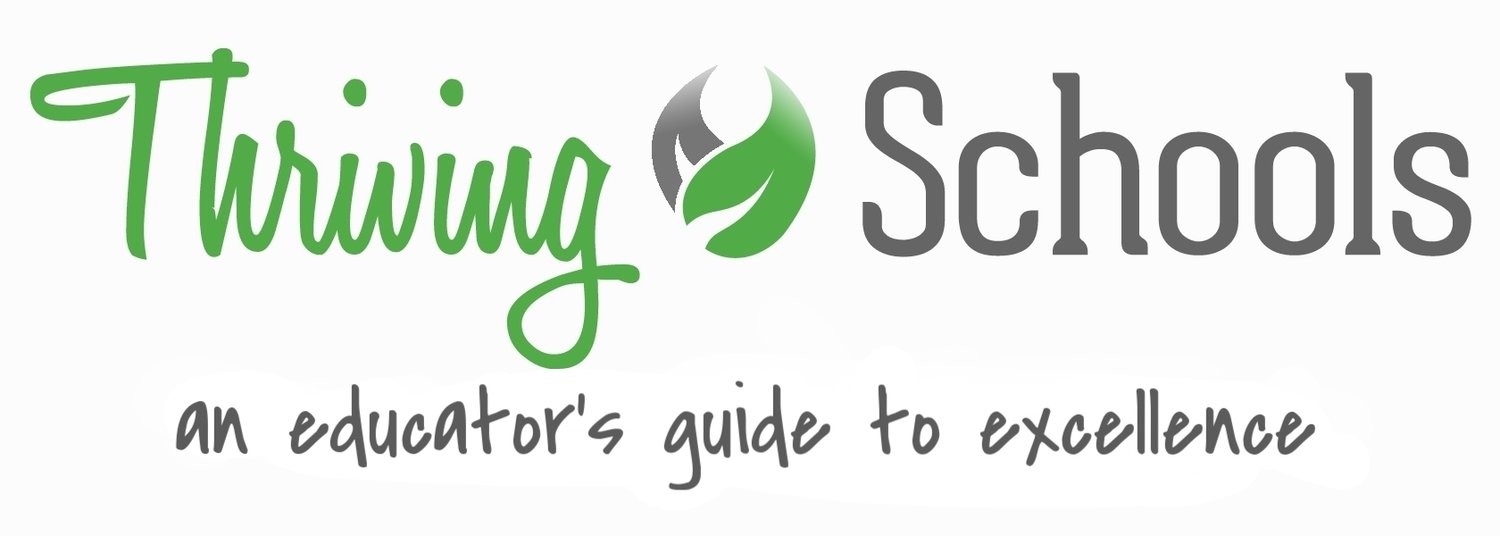Charlie Friedman: Retaining top teachers!
/Charlie Friedman is the Founder and Head of School at Nashville Classical, a charter elementary-school in Nashville, TN that opened its doors in 2013. The school serves nearly 300 students in grades K-3. Charlie is focused on doubling the number of advanced, low-income elementary students in Nashville and creating the long-term plan that will achieve it. We recently chatted with him about teacher hiring and retention practices. This post covers some of the insights he provided to us on retention.
Click here to check out Part 1 of our interview, which focuses on teacher hiring. Charlie discusses with us what the school’s interview process looks like, how his school makes use of referrals in the hiring process, and why schools need to have a comprehensive talent strategy.
Thriving Schools: What are your thoughts on why teacher turnover is so high at a lot of our country’s schools?
Charlie: Let’s be honest – teaching is the single most difficult job in the world for a million different reasons. I think a lot of the problem start there. But items like bureaucracy, staff culture, and professional environment are also contributors. But again, I think a lot of the issue stems from the fact that it is a very difficult job.
Thriving Schools: Then what can you do to ensure that teachers want to stay?
Charlie: Let me start by saying this – the best retention strategy is having a strong staff culture. And that’s easier to accomplish when you your staff is still small. You need to have people talking positively about your school and wanting to work there! Next, I do think it’s really important to have systems in place to understand what your teachers’ intentions are for the future. At Nashville Classical, we have 3 such systems.
Thriving Schools: Could you tell us about those systems?
Charlie: Sure. First, we give an anonymous survey that asks teachers about their future plans. As part of that, we ask whether they intend to leave in the next one to two years. That gives us an accurate data point around our team culture and it helps us plan for the future. The second system that we have in place is a 15-minute culture meeting that I have once a month with each of my faculty members. Some of the questions we talk about are: Do you see yourself here in 5 years? What are some of the things we can do to make our school a place you’d want to be at in 5 years? So the important takeaway here is that you have reserved time for those conversations and they’re predictable for your staff. That way, teachers are able to prepare and come ready to share more thoughtful feedback and ideas. Finally, we meet as a leadership team to talk about teacher retention, what openings we expect to have, and where we think each of our staff members would be most successful for next year. And that ensures that at a manager level, we’re all on the same page.
Thriving Schools: Let me ask a follow-up on the culture meetings you have with your staff members. How do you frame these conversations so that teachers want to provide honest feedback?
Charlie: Well, the first time I meet with a teacher I’m simply providing an overview of our cultural meeting process. I want them to know what the purpose of these meetings will be over the course of the year. I also ask teachers to prepare 1 or 2 items of critical feedback for the school. I want them to know that their input and ideas matter. And then, I make sure that I’m only listening. I’m not trying to explain, justify, or anything like that. I’m 100% listening. Doing these things set a tone that’s open, positive, and solutions-oriented.
Thriving Schools: What is the best measure of success for a school’s retention program? How does a school know it’s doing a good job on this front?
Charlie: Again, this is going to look different for different schools. And I would also say that we’re still trying to answer that question, so if anyone else out there has any good ideas, we would definitely welcome them. But what we want to do is take a look at who our data is telling us our top quartile of teachers are and then see if we can get those individuals to make long-term commitments to the school. In other words, can we get our most impactful teachers to make a commitment to our school for the next 3 to 5 years? We think this is more important than whether teachers are coming back on a year-to-year basis.
Thriving Schools: How did you develop your process of thinking in the areas of teacher hiring and retention? What books or resources were helpful to you?
Charlie: There have been two resources that have meant a lot to us. The first one is The Ideal Team Player – it’s a really good book on the nuts and bolts of hiring. The other item that has been really helpful for us is the TNTP Insights Survey and their study of Greenhouse Schools.

